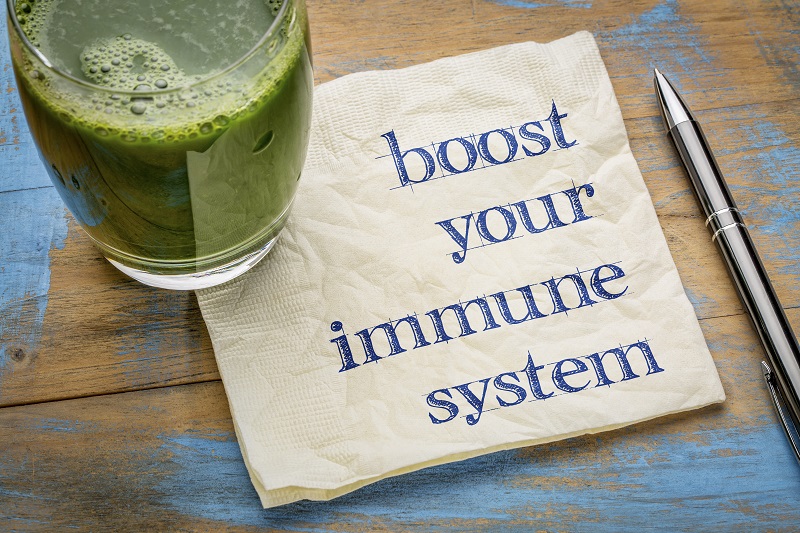Addressing Mental Health Conditions Can Boost Your Immune System To Illness
Everyone is looking for ways to reduce their risk of developing COVID-19. There is something very important to remember that addressing your mental health conditions, such as depression or anxiety, will help boost your immune system and increase your ability to fight of illnesses. Terri Dichiser, Licensed Clinical Professional Counselor at Take Charge, Inc., in Overland Park, Kansas, offers advice for your mental well-being during these uncertain times.
The connection between psychological well-being and physical health is real and experts call it “psychoneuroimmunology.” From the Amen Center Research shows that depression ramps up the production of proinflammatory cytokines while compromising immune response. Anxiety and stress can trigger the body’s fight-or-flight response, which increases cortisol levels and alters immune system responses. And other mental health conditions, such as bipolar disorder, have long been associated with immune system dysfunction.
Seeking treatment for mental health issues is a critical step in shoring up the immune system. Help is available with Terri Dichiser at Take Charge, Inc. Here are recommendations to strengthen your body’s ability to fend off viruses.
5 Ways to Boost Immunity
1. Engage in teletherapy
The body does a better job fighting off illness when it is not under stress. During this time we have a tremendous amount of stressors that we can’t control. Learn ways to reduce and manage today’s stressors include talking to a therapist, learning meditation and strengthening relationships with marital therapy. Studies done at Ohio State University found marital conflict is taxing to the immune system. They found when couples argued it took a full day longer for their wounds to heal and couples with high levels of hostility took two days longer to heal. In studies at Carnegie Mellon University volunteers exposed to cold virus were less likely to develop symptoms who reported less stress.
Also,institute a practice of mindfulness. Terri Dichiser recommends that to reduce stress, we all practice mindfulness. The Calm app, Brain tap, Insight Timer and Ten Percent are tools that you can use. In teletherapy, techniques and processes can be taught.
2.Hydrate your brain and body.
Staying adequately hydrated is critical for fending off viruses. Water oxygenates your brain and body so they can function at optimal levels. When your cells are operating at full capacity, they are better able to perform their primary functions. And when your brain is well-hydrated it helps you handle stress more effectively and allows you to make better decisions to help minimize your exposure to illness. For proper hydration, drink half your body weight in ounces of water. For example, if you weigh 150 pounds, drink 75 ounces of water a day.
 3.Skip or limit the booze.
3.Skip or limit the booze.
During times of stress we know addictions can develop or relapses can occur as a way to cope. Excessive drinking disrupts immune pathways and, according to a 2015 review by the National Center for Biotechnology of alcohol and the immune system, increases susceptibility to pneumonia and other illnesses. Chronic alcohol abuse also reduces the number of virus-fighting T-cells in the body, which lowers your ability to keep illnesses at bay. And a study in the journal Alcohol found that a single episode of binge drinking significantly disrupts the immune system.
4.Make sleep a priority.
Mom was right when she told you to get quality rest to avoid getting sick. A 2015 trial in the journal Sleep found that compared to people who sleep more than 7 hours a night, those who get only 6 hours or less of shut-eye are four times more likely to catch a cold after being exposed to the virus. Other research shows that chronic sleep deprivation suppresses the immune system. Be sure to seek help for sleep disorders, aim for 7-8 hours a night, and stick to an evening routine that encourages relaxation and restful sleep.
5.Eat from the rainbow.
There is a developing and growing field of nutritional psychiatry which is shedding light on the power of nutrition. Increase your intake of colorful fruits and vegetables. These antioxidant-rich foods have anti-viral properties that act as an army against foreign invaders, such as viruses and bacteria.
Bonus: Get moving.
Doing moderate exercise on a regular basis has been scientifically proven to enhance the immune system and reduce the risk of illness. It appears that even a single workout can give the immune system a boost. Going overboard with highly intense exercise, however, may have a negative effect on your ability to fight off viruses. A healthy approach is to walk fast — like you’re late for an appointment — for at least 30 minutes a day.
For information about mental health and counseling with Terri Dichiser during this pandemic, call Take Charge, Inc. at (913) 239-8255.
E-News Signup
Increase your emotional intelligence by signing up for the brief monthly eNews with Terri’s emotional intelligence tips and info.
FORM WILL GO HERE...
